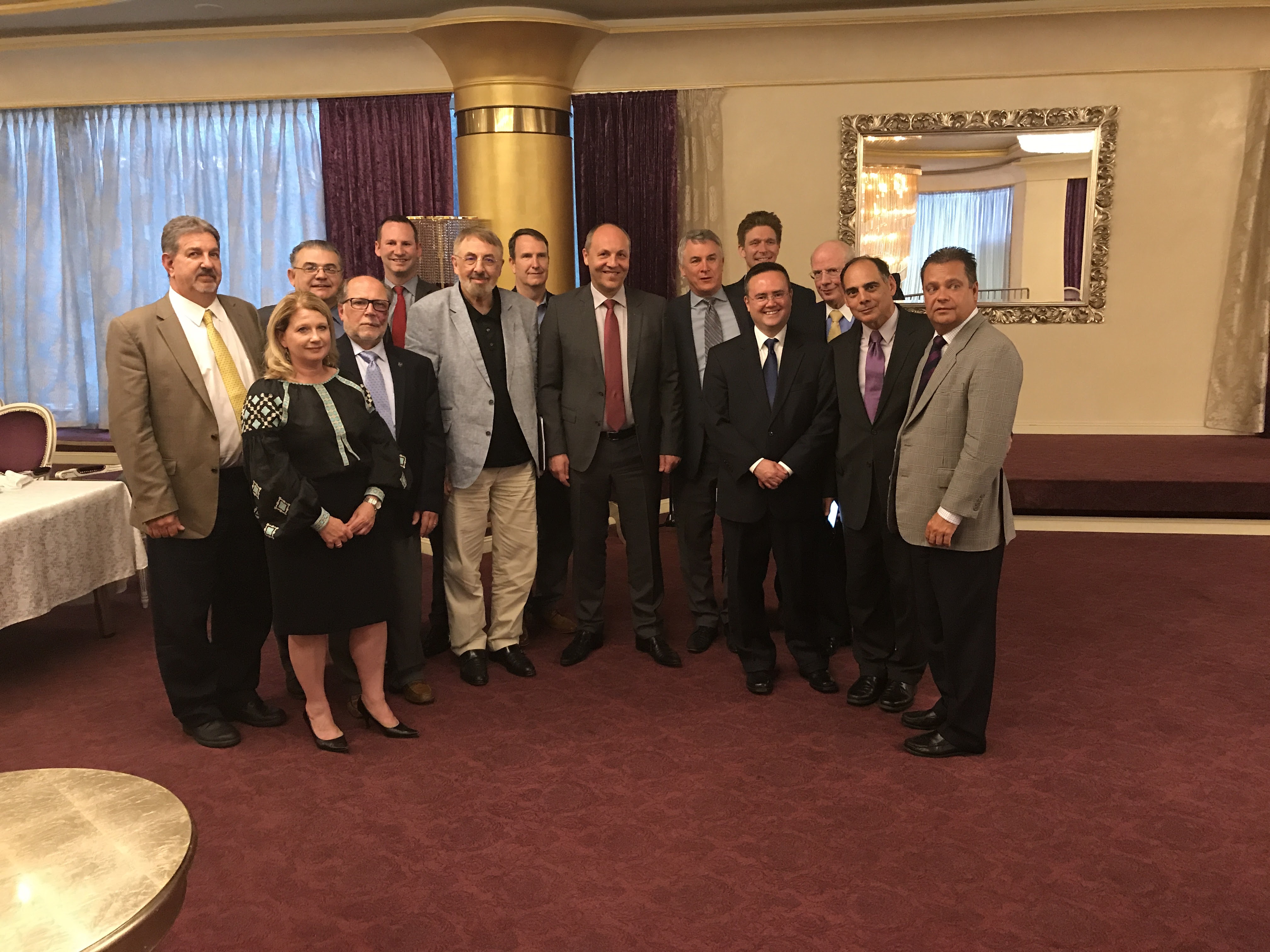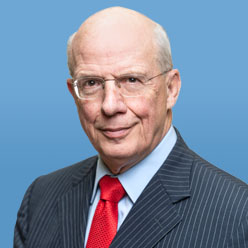From June 6–14, the American Foreign Policy Council (AFPC) organized the visit to Ukraine of a delegation of prominent thinkers and analysts with the goal of gaining a better understanding of the current state of the ongoing war with Russia, as well as to gauge the effectiveness of Ukraine’s domestic reforms and the potential for cooperation with the West.
During the first half of the trip, the delegation was led by Dr. William Schneider, former Under Secretary of State and Pentagon Defense Science Board member; subsequently, it was headed by AFPC President Herman Pirchner, Jr.

The 15-person delegation was comprised of leadership from several policy organizations and institutes, including the Heritage Foundation, the Jamestown Foundation, the Hudson Institute, the Ukrainian Congress Committee of America, and the Center for U.S.-Ukrainian Relations.
Upon arrival, the delegation immediately split into three teams to study regional effects of the war, with members traveling to the Western city of Lviv, the Southern city of Odesa, and the Eastern cities of Zaporizhia and Mariupol before reuniting for meetings in Kyiv.
While in the Ukrainian capital, the delegation met with a range of high-ranking officials, including: the Honorable Andriy Parubiy, speaker of the Ukrainian Rada; Foreign Minister Pavlo Klimkin; Mr. Vasyl Hrytsak, head of the SBU (Ukraine’s Security Service), and; Dr. Ulana Suprun, the Ukrainian Health Minister. A brief summary of their findings follows.
From a cultural perspective, it is clear to most Ukrainians that Russia, for imperialistic and nationalist reasons, started a war that has, to date, displaced some two million people, killed over ten thousand (three thousand of them civilians) and injured tens of thousands of others. The nature of Russia’s invasion has cemented this perception among Ukrainians of all stripes, including ethnic Russians and Russian speakers, and has fostered patriotism and support for the efforts of Ukrainian forces in preventing further aggression.
While Ukraine is now united and better positioned to stem future Russian aggression, a number of military challenges still need to be overcome, among them the Russian military’s ongoing ability to quickly construct an effective naval blockade in the country’s south. Ukrainian ground forces additionally face a particular disadvantage due to a dearth of anti-tank weaponry and inadequate drone capabilities — deficiencies that could be corrected with assistance from the West.
The economic outlook for Ukraine is better than in previous years. Ukraine’s economic disengagement from Russia has not only reduced Russia’s economic leverage over the country, but also allowed Kyiv to integrate more fully with the West. Since removing corporate subsidies on natural gas some 18 months ago, national gas firms are now contributing billions of dollars to the Ukrainian budget. Additionally, major reforms have already taken place in the openness of public procurement tenders, the adjustment of electricity and natural gas prices to market levels and an overhaul of the country’s police force, among other topics.
The Ukrainian government’s current reform agenda focuses on justice, law enforcement, and the public health system. Corrupt interests entrenched in these sectors and their political allies are fighting to slow down the reforms, but no longer have the power to block them outright. Politically, Ukraine is becoming a stable nation. Although the popularity of the government and associated parties has waned, the population as a whole is more democratic, and is waiting for the next election rather than taking to the streets.
